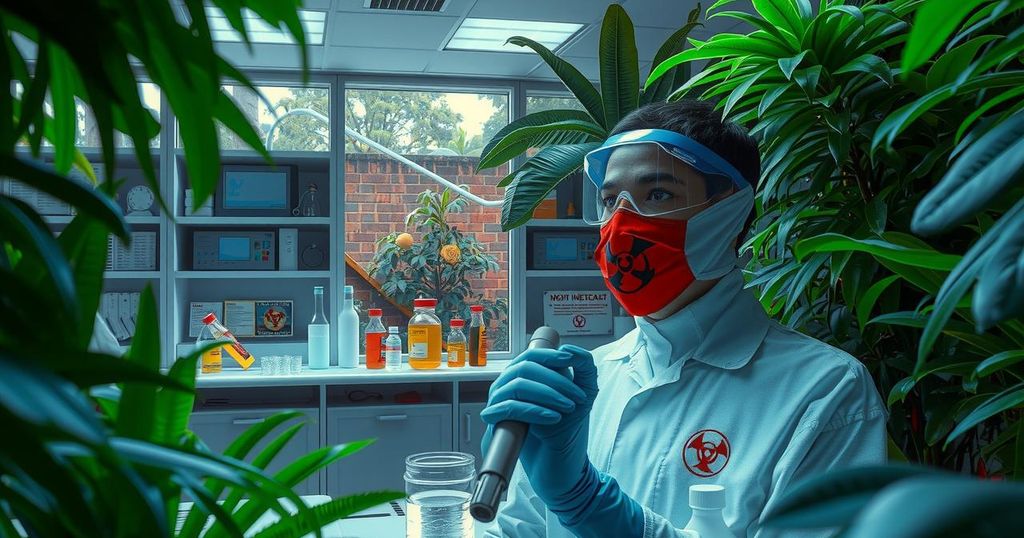The ICRC has raised alarms regarding the potential release of Ebola and other pathogens from a laboratory in Goma, DRC, amid escalating violence from armed groups. The conflict has led to a surge in civilian injuries, overwhelming medical facilities. Approximately half a million people have been displaced, with urgent humanitarian needs mounting in the area.
The International Committee of the Red Cross (ICRC) expressed significant concerns regarding the ongoing conflict in Goma, Democratic Republic of Congo (DRC). The situation poses a threat of potential outbreaks, particularly of Ebola, from a laboratory that houses various pathogens. Patrick Youssef, the ICRC’s regional director for Africa, emphasized the urgency of maintaining power to the laboratory, which is at risk due to the fighting.
Youssef indicated that the laboratory’s proximity to the ICRC delegation heightened the stakes, warning of devastating outcomes should the Ebola samples be released amidst the violence. He also noted that there was no information available pertaining to the security of other laboratories within the city. The ongoing clashes have escalated since armed groups entered Goma, with a steep increase in civilian casualties reported.
The eastern DRC has been marred by conflict since the Rwandan genocide of 1994, leading to the displacement of countless civilians. The United Nations refugee agency recently reported that 500,000 individuals have been forced from their homes in the region this year alone, while Goma’s population of approximately one million includes about 700,000 internally displaced persons. The ICRC has acknowledged the grave consequences of the intensified violence, especially concerning civilians caught in the crossfire.
Reports detail thousands of injured individuals seeking medical assistance at ICRC-supported facilities in Goma. Myriam Favier, head of the ICRC sub-delegation, highlighted the dire state of many patients arriving seriously wounded, often lying on the floor due to overcrowding in hospitals. Furthermore, Francois Moreillon, head of the ICRC’s delegation in DRC, reported an influx of distressed calls from individuals in desperate need of help.
The organization is actively working to address these urgent needs and restore order in a rapidly deteriorating humanitarian situation, calling for continued support and caution in light of the dangerous circumstances. Protecting both vulnerable civilians and crucial medical infrastructures within conflict zones remains a top priority for the ICRC as they navigate this challenging landscape.
The Democratic Republic of Congo has faced continuous violence and civil strife, particularly following the Rwandan genocide in 1994. The region has witnessed various armed groups vying for control, leading to widespread displacement and humanitarian crises. The city of Goma has become a focal point of conflict, where the growing instability threatens not only civilians but also critical health infrastructures, such as laboratories housing dangerous pathogens like Ebola. The presence of internally displaced persons exacerbates the urgency of the situation and poses significant public health risks.
In conclusion, the ICRC’s warning about the hazardous consequences of ongoing conflicts in Goma, DRC, underscores a critical public health threat involving Ebola and other pathogens. As fighting escalates, the risk to civilians and medical facilities grows. The ICRC is urging the international community to provide necessary support to safeguard vulnerable populations and maintain laboratory integrity amidst violence.
Original Source: www.lemonde.fr






